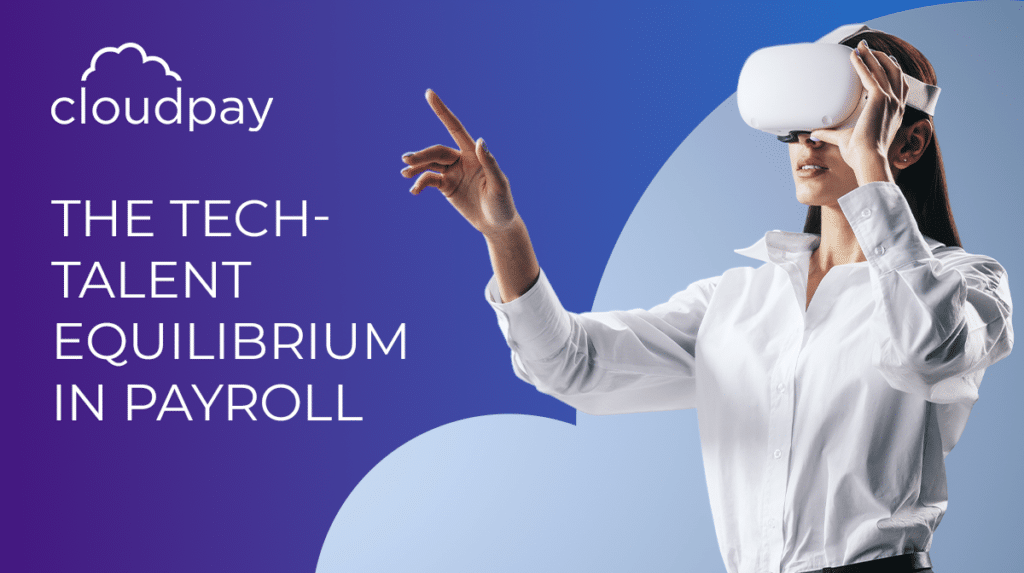With technology such as automation, APIs and artificial intelligence (AI) transforming global payroll, the skills required from payroll professionals are changing. More and more organizations need tech-centric capabilities alongside traditional skillsets in compliance, data validation and employee relation, so now is the time for investment into payroll talent to be re-positioned.
This is important because, despite the growth in its abilities, technology cannot be relied upon exclusively to take care of payroll processing in its entirety. Of course, different organizations will find that payroll professionals add value in different areas, but identifying those areas starts with understanding where human endeavor can best complement payroll technology.
This blog highlights the most important payroll skills that organizations should be investing in today to maximize payroll capabilities in the long term. These are based on insights from 500 senior decision-makers across payroll, finance, and human resources in multinational companies with multi-country payroll operations, as featured in our latest report on the tech-talent balance in payroll.
By asking the open-response question “Which attributes and/or knowledge do you expect payroll talent and experts to bring to your organization?”, we’ve created this snapshot of payroll skill demands in 2025 and beyond.
Skill 1: Compliance knowledge in a world of global payroll
More respondents to our survey (30%) cited this skill than any other. In light of a global payroll landscape where systems and regulations are constantly changing, nearly half of respondents said technology has an extreme impact on supporting payroll timeliness (47%) and compliance (46%). But, crucially, only people were seen as being able to help organizations stay compliant and innovate their payroll processes.
While global payroll solutions like CloudPay’s can help automate compliance processes and cut out costly errors, human expertise is vital to guide understanding and strategy in the long term. This explains why some respondents cited “commitment to continuous learning” and “staying updated with payroll trends” as important complementary attributes.
Skill 2: Technical literacy, problem-solving & resolution skills
Technology skills were ranked second by our panel of respondents, emphasizing that even the best tech requires the best people to ensure its efficacy. When things go wrong, it’s up to payroll team members to pick up the pieces and ensure temporary measures are in place to keep disruption to a minimum.
Alongside this, problem-solving & resolution skills ranked fifth in respondents’ list of priorities, as it gives organizations better capabilities around troubleshooting, diagnosis, and issue resolution. In particular, they highlighted payroll professionals’ value in “debugging payroll software difficulties”, especially “during emergency situations or rapid organizational change”.

Tech-talent equilibrium in Payroll
Learn more about what 500 senior decision-makers across payroll, finance, and human resources felt by downloading our full report today.
Follow the link below to download your free copy.
Skill 3: Delivering “the human touch”
Many employees still prefer human interaction when they have payroll issues that need resolving, even if payroll systems are able to serve them faster and more effectively in certain cases. This is why management and supervision ranked third in respondents’ priorities, as human expertise can apply some understanding and nuance to resolving employee queries, and building satisfaction, trust, and improved employee experience in the process.
Ultimately, when employees want to know what all the details of their payslips mean, or are looking for an explanation for why taxes or deductions have increased, payroll teams with excellent communication skills are better placed to deliver those insights with empathy.
Skill 4: Strategic input
System transformation skills ranked seventh on the priority list, and beyond incident response, these skills are also instrumental in guiding both payroll strategy and business-wide strategic plans in the long term.
This is especially important as the nature and scale of payroll solutions and challenges continue to evolve at pace. Payroll experts can draw on the depth of their experience to suggest which new technologies and areas to focus on, and to appropriately plan for expansion, recruitment and onboarding in new regions and territories. Investing in this expertise represents an important building block for long-term success.
Skill 5: Data analytics & insight generation
It may come as a surprise that data analysis ranked fourth among respondents’ expected skills, given the recent focus on the analysis capabilities of cutting-edge Global Payroll Engines like CloudPay’s. However, while these technologies can process huge payroll data volumes quickly and at scale, it still comes down to payroll professionals to interpret the results and make strategic decisions based on them.
Indeed, more respondents cited personnel as having an extreme impact on data analysis and reporting (35%) as compared to technology (31%). This was perfectly summarized by the comments of two of our respondents, who said that “personnel propose [strategy] thorough analysis and insights into payroll trends”, and that they “analyze payroll data for strategic business decisions“. The key here is the need to upskill payroll employees’ ability to interpret and utilize the data technology provides.
Skill 6: Time management & accuracy
While time management skills only ranked tenth among our respondents, a deeper look at some of the other results from our report hints that this is an area where human endeavor is strongly valued.
Some 44% of respondents said that personnel have an extreme impact on payroll timeliness; in the best of both worlds, technology takes care of the heavy-duty data processing, while payroll professionals coordinate procedures and departments in line with various deadlines. This is one of the reasons that 76% of respondents say they are satisfied with their staff’s ability to review and process payroll accurately and on time. While this may not seem like a niche or flashy skill to focus on improving, it supports perhaps two of the most crucial metrics of any payroll process – timeliness and accuracy.
In summary: Connecting technology and skills
What these results underline is that human expertise is just as important in global payroll as it ever was, it’s simply being applied in very different ways. With the use of AI, automation and APIs becoming more widespread, human skills can be applied to complement these technologies and leverage more value.
Navigating the global shortage of payroll talent (cited by 72% of survey respondents) may make attracting and retaining the employees necessary to build these skills in-house challenging and expensive. This is where focusing investment towards an outsourced global payroll platform — one that encompasses modern technology, insights and multi-country expertise — may be the best way forward.
Working with an external provider that continually invests in its own people, knowledge and technology can help future-proof payroll in all areas. In turn, this supports innovation, scalability, and the winning combination of global payroll guided by local expertise.
Learn more about the balance of people and technology in payroll by reading the full report.
Then discover how CloudPay’s global payroll solutions and experience strike that balance.




